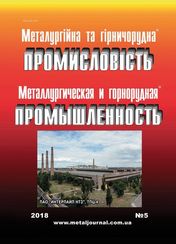Research on Cooling Efficiencies of Water, Emulsions and Oil ![]() Full text
Full text
Aleš Horák1, Miroslav Raudenský1, Michal Pohanka1, Hana Bellerová1, Tilo Reichardt2
1 Heat Transfer and Fluid Flow Laboratory Brno University of Technology, Faculty of Mechanical
Engineering, Technicka 2896/2, 616 69 Brno, Czech Republic
2 Water Technology and Water Management, VDEh- Betriebsforschungsinstitut GmbH,
Sohnstr. 65, D-40237 Düsseldorf
Metall. Min. Ind., 2010, Vol. 2, No. 4, pp. 271-278
Abstract
Pure water is considered as a coolant in many technologies connected with steel processing. This presumption is not quite true because plant water contains various pollutants. Some technologies use additives for lubrication and anti-corrosion reasons. A typical example is in the cold rolling of steel, where water based emulsions are used for the cooling of rolls and for lubrication. In hot rolling technology, oil is now frequently used for the lubrication of rolling gaps. Part of this oil sticks to the roll surface and mixes with cooling water. Pure oil is used as a coolant in rolling of some non-ferrous metals, while other metallurgical processes use water, but water becomes polluted by oil and contains a higher mineral salt content. The spray cooling efficiency of these coolants is different from the cooling efficiency of pure water. This study showed that even a small percentage of an additive can significantly reduce the cooling ability of water. Cooling intensity achieved in plant conditions can be less, especially with an increase of pollutant concentration in the cooling circle. The study presented here compares spray cooling with pure water to the cooling achieved using water-based oil emulsions of various concentrations and cooling using pure oil.
Keywords: SPRAY COOLING, WATER COOLING, EMULSION COOLING, OIL COOLING, EXPERIMENTAL
